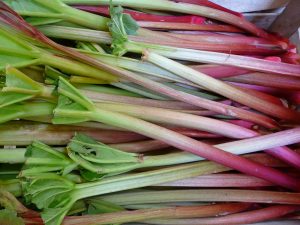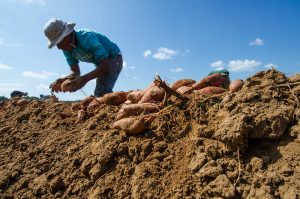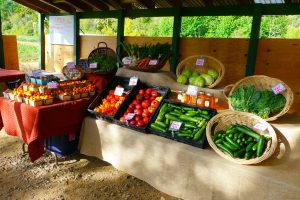Just Food Project: Diasporic Foodways
“First you lose your costume. Then you lose your language. The last thing that you lose is your food.” – Patricia Klindienst.This quote is drawn from a chapter titled ‘Place’ (Chapter 3) in the book, The Earth Knows My Name, where a Polish American vintner and a Japanese American berry farmer speak to the complexities around land ownership, cultivating food and immigration.
Just Food Project: Migrant Labour
When we think about labour and food, who are the faces that appear in our minds? Developed country’s food systems rely on a racialized workforce where BIPOC bodies represent the majority of low wage, low skill, high risk jobs. This includes both immigrant and migrant labourers in meat-packing/food processing plants, farms and fast-food restaurants.[8] This module primarily focuses on a Canadian context and employs migrant labour as a way of unpacking key concepts in labour, racializing processes, and food systems.
Just Food Project: Gender, Equity and Food Security
This case study explores relationships between food, gender and social justice through feminist and queer lenses. Food insecurity disproportionately affects womxn, trans, queer, and non-binary people.


